While the degree of support for radical anti-Zionism in South Africa is often wildly exaggerated – the government remains committed to the two state solution and a 2007 poll indicated that 28 per cent of South Africans side with Israel in the conflict as opposed to 19 per cent with the Palestinians – it does have many supporters among South Africa’s Muslim minority, the militants of the African National Congress (ANC), hostile to every form of ethnic politics, and in parts of the white progressive intelligentsia who claim to see in Israel an ‘apartheid state’. In this essay, Milton Shain maps the history and the contemporary dynamics of anti-Zionism in South Africa.
It should not have come as a surprise to South Africans when a few months after the UN General Assembly endorsed the Goldstone Report in 2009, African National Congress (ANC) stalwart Kadar Asmal called on the world to deny legitimacy to Israel. To be sure, for the chattering and intellectual classes in South Africa, both black and white, the word ‘Zionism’ has become synonymous with evil. While a small Muslim minority, less than 2 per cent of the total population, drives the anti-Zionist agenda, hostility is widespread and deeply rooted in the largely black ANC and among the white progressive intelligentsia.
HISTORY OF ANTI-ZIONISM
Muslim hostility goes back decades. As early as 1925, a local newspaper, Muslim Outlook, criticised ‘Jewish capitalists’ in Palestine for allegedly forcing Arab peasants off the land,[1] and the Israeli War of Independence (1947-48) was described in the Muslim press as a catastrophe (Nakba).[2] Further Israeli victories against Arab forces that culminated in the Six-Day War, exacerbated anger as South African Muslims shared in the humiliation of their Muslim ‘brothers and sisters’.[3] Yet for the most part hostility was low key, below the radar and largely removed from ‘white’ awareness in what was a hermetically sealed apartheid society. From the 1970s, however, hostility moved more into the open as a new generation of Muslims challenged the relative conservatism of their elders. The Muslim Youth Movement established in 1970 and the Muslim Students Association established four years later presented a more radical message and rejected the more accommodating behaviour of the Muslim establishment.[4]
Increasingly, Muslims became acquainted with the Islamist writings of Abdul A’la Mawdudi (1903-1979) and Sayyid Qutb (1906-1966); while readers of Muslim News were warned about ‘Zionist designs’. Study programmes were initiated and manuals printed. Much of the material was provided by Islamic groups abroad, targeting Zionism, secularism, capitalism, and communism as the major threats to Islam.[5] In calling for an ‘Islamic way of life,’ groups such as the Muslim Youth Movement ‘reflected an emergent black consciousness movement’s appeal to an authentic black identity in South Africa’.[6] Inspired by radical teachings – including the writings of Ali Shari’ati (1933-1977) and the Iranian Ayatollah Ruhollah Khomeini – and encouraged by the student uprising in Soweto in 1976, the success of the Iranian Revolution, Khomeinism and the international Muslim struggle against imperialism, young Muslims tapped into a deep-rooted anger that identified Zionism as the ‘citadel of imperialism’. The Muslim press regularly wrote about international financial machinations centred on Zionism, and well-organised Al-Quds Day events defined the Jewish state as a focus of evil and a conspiratorial centre.
Although Iran was not seen as a model for South African Muslims, Qibla, an Islamist movement founded in 1980, was patently inspired by the overthrow of the Shah. A new consciousness was also apparent in the wake of Israeli forces occupying southern Lebanon in 1982. Although without emotional attachment to the Israeli-Palestinian conflict, both the ANC in exile as well as progressive groups in South Africa broadly shared a ‘Third Worldist’ view that identified with the Palestine Liberation Organisation (PLO) and saw Zionism as a form of colonialism, and the exclusivist ethnic Jewish state as ‘tribalism’. Indeed the ANC (together with the Indian Congress, the Coloured People’s Organisation and the Congress of Democrats) had already developed a hostile view of ‘tribalism’ (or ethnicity) in its Freedom Charter of 1955 that stressed the unity of South Africa and which opposed the politics of ethnicity, which it deemed exploitative and divisive. Intellectually, these positions were underpinned by a critique of the dangers of ethnic mobilisation as evident in the Afrikaner national movement. These ideas were further reinforced from the 1960s by Marxian currents within the academy, both in South Africa and abroad. Scholars deconstructed ethnicity while demonstrating how it was being manipulated and used in South Africa as a means to divide and rule, clearly evident in the apartheid project with its proposed puppet ethnic ‘homelands’.
From the late 1960s, both exile and domestic activists took a decidedly dyspeptic view of the West, with its support for the apartheid state and the emerging Pretoria-Jerusalem axis. Deeply influenced by the Soviet critique, the ANC journal, Sechaba, pushed the Zionism/colonialism paradigm, identified with the Palestinians, and highlighted the ruling National Party’s ties with Israel. ‘We of the African National Congress of South Africa have much in common with the people of Palestine’ explained Sechaba in 1969. ‘We feel the wounds, the misery and the human degradation they continue to suffer at the hands of Israel and its international imperialist allies. We condemn the growing links that Israel maintains with the Nazi South African regime.’[7]
By the 1980s an increasingly radicalised left criticised Israel as an exclusivist apartheid state. At the UN, Dr Neo Mnumzama, the Chief Representative of the ANC – still in exile at the time – put it bluntly: ‘The South African people have never approved of Zionism.’ ‘They see parallels of apartheid in Zionism and therefore their struggle against apartheid automatically has overtones of anti-Zionism which is not the same thing as being anti-Jewish.’[8] These views were shared by Aubrey Mokoena, a senior member of the United Democratic Front, effectively an internal wing of the ANC. Zionism, he maintained, was simply racism, ‘because Zionism says we close our ranks on an ethnic basis. We take care of the Jewish interests. If you are Jewish it’s okay, if you are not Jewish, out’.[9] A former president of the (Africanist) Azanian Political Organization (Azapo), Ishmael Mkhabela, took a similar view, claiming that Zionism was a form of religious discrimination which in his view was the same as the racial discrimination faced by blacks in South Africa.[10]
This alleged exclusivity ran counter to the non-racial and inclusivist outlook of the ANC and progressive formations in South Africa. With it came a sense of unease with a ‘Jewish state’ and an easy sympathy for the PLO, informed at least in part by the spread of liberation theology and its global concern for the downtrodden.[11] There is no doubt, said the prominent civic leader of the 1980s, Dr Nthato Motlana, ‘that Black Africans tend to identify with the PLO … Let’s be clear about this, there is a perception of the Israeli-Arab conflict as one of almost colonialism of a white race coming out of Europe.’[12]
POST-APARTHEID SOUTH AFRICA AND ISRAEL
It is hardly surprising that with the release of Nelson Mandela in 1990, the unbanning of the ANC and other proscribed movements, and the normalisation of South African politics, a broad hostility towards Zionism reared itself in public discourse. Indeed within weeks of the release of Nelson Mandela, the Jewish community was jolted when Mandela warmly embraced Yasser Arafat in Lusaka. The day after pictures of the meeting were published, Mandela was quoted as saying, in response to a question, that if his meeting with Arafat and his statements equating the struggle of the Palestinians with that of the blacks were to alienate ‘South Africa’s influential Jewish community,’ that was ‘too bad’.[13]
Hostility towards the Jewish state was bolstered among many whites by the English-language press, owned by the Irishman Tony O’Reilly’s Independent Group from 1993 till 2013, and thereafter by an ANC-connected businesman, Iqbal Surve. Whereas these newspapers had unquestioningly supported the Zionist enterprise for decades, under the Independent Group (and then Surve) columists like Robert Fisk and John Pilger presented an alternative and critical narrative that encouraged framing the Israeli/Palestinian conflict through a South African prism. In its columns, a communist Jew, Ronnie Kasrils, who was a member of the ANC underground for 30 years, and a senior commander of its military wing, Umkhonto We Sizwe, regularly spoke out against the Zionist idea. Arguing that Israeli Jews had much in common with the Afrikaners, including the idea of ‘chosenness,’ he contended that Zionism was being used to advance a particular ethnicity – ‘an exclusivity which gives rise to racism and all sorts of negative things’.[14]
It is apparent that, for intellectuals at least, the success of South Africa’s so-called ‘miracle’ has undermined the notion of an exclusive Jewish state. Increasingly they ask why Israelis and Palestinians do not follow the South African example and establish a single constitutional state. An exemplar of this reasoning was the veteran journalist and former editor of the liberal Rand Daily Mail, Allister Sparks. In syndicated articles he drew parallels between South Africa and Israel, arguing that the Jewish state had no alternative but to negotiate with its enemies, including Hamas and Islamic Jihad. Israel’s refusal to do so, he maintained, was reminiscent of the old National Party in South Africa.[15] For Sparks the ‘two state’ solution was dead. Israel’s lack of will to remove the settlements coupled with demographic realities had precluded this option. ‘Like South Africa’s bantustan policy,’ he writes, ‘it was a nice idea in theory: to separate rival groups living in one country so that each can have its own national homeland sounds like a moral solution – provided the separation is fair and the homelands are viable’. In building his case, Sparks reminded readers how the apartheid planners had also denied demographic realities in their dream of a white South Africa. But eventually they had to face the truth.[16]
Following a visit to the region, Sparks reinforced the South African paradigm. After meeting in Damascus with Musa Abu Marzook, deputy to Hamas’s Damascus-based Khalid Mashaal, he reported that he found the Hamas man to be a pragmatist. Hamas’s call for a hudna, or truce, which could prepare the way for a settlement, made great sense to Sparks. ‘The mutual recognition of a stalemate,’ he writes, ‘or what we South Africans back in the 1980s called a “violent equilibrium,” has been identified by political analysts as a crucial first step towards resolving national conflicts of this kind. Thereafter, as the South African experience showed, events can sometimes start generating their own momentum.’ Underpinning this critique is a comparison of Palestinian life with that of blacks under apartheid. ‘The whole matrix is vividly reminiscent of South Africa’s Bantustan dispensation, although Israelis vigorously resist any such comparison,’ he explained. ‘I travelled extensively through the West Bank, talking to Palestinians and experiencing what they go through every day, and I am convinced it is neither a viable homeland nor a bearable existence for them.’[17]
The intellectuals view the Israeli/Palestinian conflict through a South Africa prism, framing of the conflict in colonial terms. The mantra of non-racism in the ‘new South Africa,’ its opposition to ethnic politics, its powerful anti-colonialism, its support for the underdog, and the success of South Africa’s so called ‘miracle’ all add popular weight to these views. If South Africa could pull itself back from the chasm and avoid a racial conflagration, why can the Jews and Palestinians not do the same? South Africans have great confidence in talking, consulting and negotiating – ‘the South African way,’ as some observers have put it. More than that, South Africans negotiated a constitution that was inclusive, but respectful of cultural and religious diversity. Surely this can be replicated by Israelis and Palestinians?
What we have in Israel then is – to borrow Tony Judt’s term – an anachronistic ethnic state.[18] At least this is the way many South Africans (including radical and some leftist Jews) see it. The ethnic state echoes Afrikaner dreams and builds upon exploited cheap Palestinian labour. Within this paradigm, the Palestinian struggle is framed as anti-colonial resistance. But the parallels are taken even further. South Africans believe that the Palestinians were offered ‘Bantustans’ at Camp David, akin to what the ‘homeland’ leaders were offered under apartheid. This would replicate the historic migrant labour system so powerful in South African consciousness, as Ronnie Kasrils has stressed.[19]
ANTI-ZIONISM AND ANTISEMITISM
Put simply, the notion of exclusivity – manifest in the ethno-national state – has always raised problems for the radical Left, challenging as it does a deep seated universalism and a long held hostility to nationalism. And South Africa, as Hermann Giliomee, a leading South African historian, explains, is informed by ‘a dogmatic or intransigent universalism. Its point of departure is that race or ethnicity as a principle of social organisation is essentially irrational and ephemeral and that there is no need to make any concessions to it. What this boils down to is the unshakeable conviction that there is not much more to racial or ethnic identification than the legacy of apartheid classification’.[20]
Clearly this mind-set runs counter to the notion of a Jewish state. Zionism as a liberation movement is forgotten: the term has become associated with exclusivism and expansionism. ‘It’s a policy that to me looks like it has very many parallels with racism,’ explains Nobel Laureate, Archbishop Emeritus, Desmond Tutu.[21] In this worldview, Jewish suffering in the diaspora and the dramatic rebirth of the Jewish state is of no import.
Of course for some commentators, this critique is a hygienic form of antisemitism – but hatred of Israel is not synonymous with Jew-hatred. Nonetheless, rhetoric sometimes betrays true feeling. Holocaust denial, for example, has occasionally crept into Muslim discourse, and at the time of Operation Cast Lead in 2006, deputy Foreign Minister Fatima Hajaig told an enthusiastic audience in the largely Indian Johannesburg suburb of Lenasia that the US and the West were controlled by ‘Jewish money power’. Similarly, during ‘Israel Apartheid Week’ in 2013 protestors led by the South African chapter of the international Boycott, Divestment and Sanctions (BDS) movement disrupted a concert at the University of the Witwatersrand in Johannesburg featuring a visiting Israeli pianist. Later in the year demonstrators chanted ‘Dubula e Juda’ (‘Shoot the Jews’ in Zulu) outside a concert intended to compensate for the earlier disruption.[22] Posters held aloft during marches show no distinction between opposition to Israeli policies and simple crude Jew-hatred. ‘Keep calm and Kill the Jews’ was posted on the ANC Youth League website.[23] On the whole, however, it is a classic left-wing critique that informs anti-Zionism. South African Communist party leader and current Minister of Higher Education, Blade Nzimande, told a mass meeting in Johannesburg that the conflict was one of ‘western imperialism in partnership with Zionism’ against the indigenous Palestinians.[24]
For all that, one should not assume that the country as a whole is awash with anti-Zionism. A Pew Poll based on an urban population study conducted in 2007 indicated that 28 per cent of South Africans sided with Israel in the Israeli-Palestinian conflict as opposed to 19 per cent with the Palestinians,[25] and a recent survey undertaken by the Kaplan Centre for Jewish Studies at the University of Cape Town suggests that the conflict hardly registers among blacks.[26] More than that – at least for now – the ANC-led government accepts the two-state solution. Despite pressure – including a massive march to Parliament during the recent Temple Mount security crisis – the government appears intent on separating itself from the ANC as a political party. The latter has for some time advocated cutting ties with Jerusalem. What pressures are being exerted to maintain ties are not clear, but there seem to be no signs that relations between Israel and South Africa will be terminated in the foreseeable future.
[1] Muslim Outlook, 18 April, 1925.
[2] Muslims protested outside Cape Town against the ‘…occupation of Palestine by the Zionists ….’ See Muhammed Haron ‘The Muslim News (1960-1986): Expression of An Islamic Identity in South Africa,’ in Louis Brenner (ed), Muslim Identity and Social Change in Sub-Saharan Africa, Hurst & Company, London, 1993, p. 222.
[3] In ‘Barbarity of the Jews’, (Muslim News, 14 July 1967) it was stated that: ‘1948 and 1967 show that despite centuries of wandering in Europe they [the Jews] have not lost their barbaric tendencies which previously incurred the wrath of God’. See also Muslim News, 28 July 1967.
[4] See Farid Esack, Qur’an, Liberation and Pluralism, One World books, Oxford, 1997, p.33.
[5] See Abdulkader Tayob, Islamic Resurgence in South Africa , University of Cape Town Press, Cape Town, 1995, p. 140 and Muhammed Haron, ‘Islam, Intellectuals and the South African Question’, in Peter Vale, Lawrence Hamilton and Estelle H. Prinsloo (eds), Intellectual Traditions in South Africa. Individuals and Institutions, University of KwaZulu-Natal Press, Scottsville, 2014, p. 223.
[6] Tayob, op cit, p.122.
[7] Sechaba, April, 1969.
[8] Dr Neo Mnumzama: Interview in Tzippi Hoffman and Alan Fischer (eds), The Jews in South Africa. What Future?, Southern Book Publishers, Johannesburg, 1988, p.72.
[9] Aubrey Mokoena: Interview in Hoffman and Fischer, op cit, p.34.
[10] Ishmael Mkhabela: Interview in Hoffman and Fischer, op cit, p.46.
[11] See, for example, Secretary General of the South African Council of Churches. Rev. Frank Chikane: Interview in Hoffman and Fischer, op cit, pp.19-23. For the spread of liberation theology in South Africa, see Peter Walshe, ‘The Evolution of Liberation Theology in South Africa’, Journal of Law and Religion, Vol 5, No.2, 1987.
[12] Dr Ntatho Motlane: Interview in Hoffman and Fischer, op cit, p.61.
[13] See Allie A. Dubb and Milton Shain, ‘South Africa’, in David Singer and Ruth Seldin (eds), American Jewish Year Book, American Jewish Committee, Jewish Publication Society, Philadelphia, p.415.
[14] Immanuel Suttner (ed.), Cutting through the Mountain. Interviews with South African Jewish Activists, Viking, London, 1997, p.281.
[15] See, for example, Allister Sparks, ‘Cutting a peace deal easier now’, Cape Times, 16 November, 2004.
[16] ‘Israel’s two state solution is dead’, The Star, 21 September, 2005. See also ‘The boys who cried “anti-Semite”’, The Star, 6 October, 2006.
[17] The Star, 12 July, 2006.
[18] See ‘Israel: the Alternative’, New York Review of Books, 23 October, 2003.
[19] Sunday Times (South Africa), 22 February, 2004.
[20] Hermann Giliomee, ‘Manipulating the past’, in Political Correctness in South Africa, South African Institute for Race Relations, Johannesburg, 2000, pp.93-94.
[21] Archbishop Desmond Tutu: Interview in Hoffman and Fischer, op cit, p.15.
[22] See Rebecca Hodes, ‘Dubul’ ijuda/Shoot the Jew’ and the local architecture of anti-Semitism’ http://www.dailymaverick.co.za/opinionista/2013-09-12-dibul-ijudashoot-the-jew-and-the-local-architecture-of-anti-semitism/#.VDzhfaIaKM8
[23] ‘Antisemitic Incidents in South Africa’, South African Jewish Board of Deputies, Johannesburg.
[24]http://www.politicsweb.co.za/politicsweb/view/politicsweb/en/page71619?oid=673495&sn=detail&pid=71619
[25] Milton Shain, ‘South Africa’, in David Singer and Ruth Seldin (eds), American Jewish Year Book, Vol. 108, 2008, p.559.
[26] ‘Attitudes and Perceptions of Black South Africans towards Jewish People in Cape Town, Durban and Johannesburg’, Isaac and Jessie Kaplan Centre for Jewish Studies and Research, University of Cape Town, 18 November, 2016.

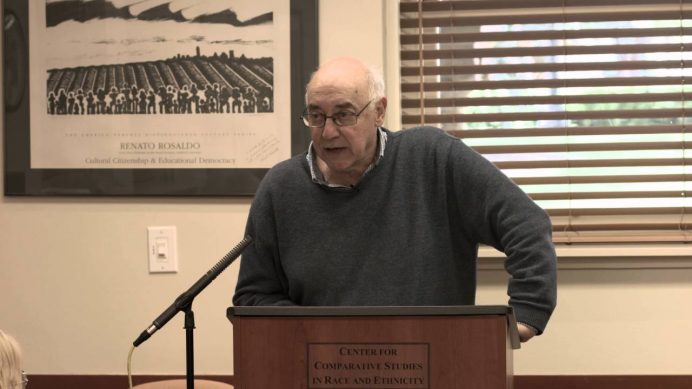
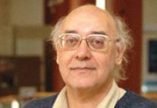
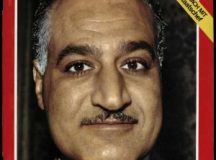
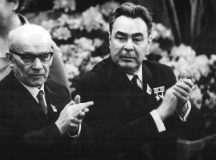
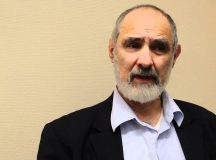
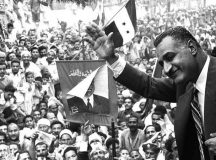































I get an impression of a strong undercurrent through all the development and strengthening of the anti-Israel feelings in S.A. traced by Milton Shane in his long article which I confess to not having gone through as thoroughly as I should have. If anyone feels I’m off track because of that, they can be spared further discomfort by a simple click on the delete button.
I feel and suspect that the whole negative attitude described was and is driven by the continuous misleading narrative and downright lies spread so brilliantly successfully by the Palestinians throughout the western world, The huge list of quotes and attitudes listed by Milton are permeated with the various sources’ ignorance or deliberate distortion or upending, of the true facts -historical and present – about Israel. When otherwise respected leaders such as Tutu use the word “apartheid” again and again to describe the situation in Israel, all the rest is meaningless. It’s as if someone says that the sun rises in the west and sets in the east, then goes on to describe the many effects this has on society and the ecology. The rest of his article is not worth the paper its written on. That’s how I feel about the details recorded in Milton’s article. The nuances about how and why the recent history of S.A. can explain to some degree why the ideas presented grew in a fertile environment, doesn’t help those at whom their venom is directed, I’m afraid.